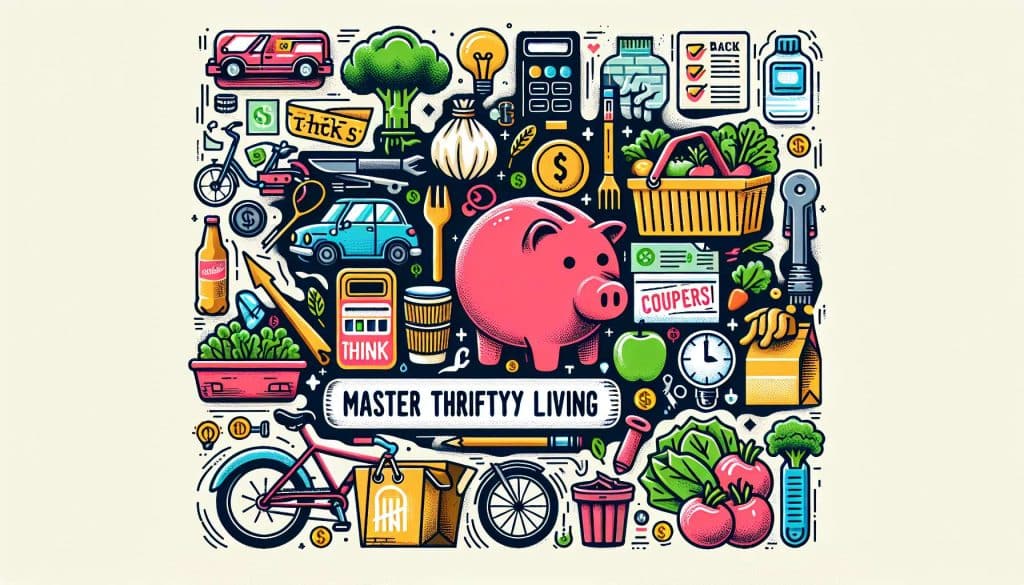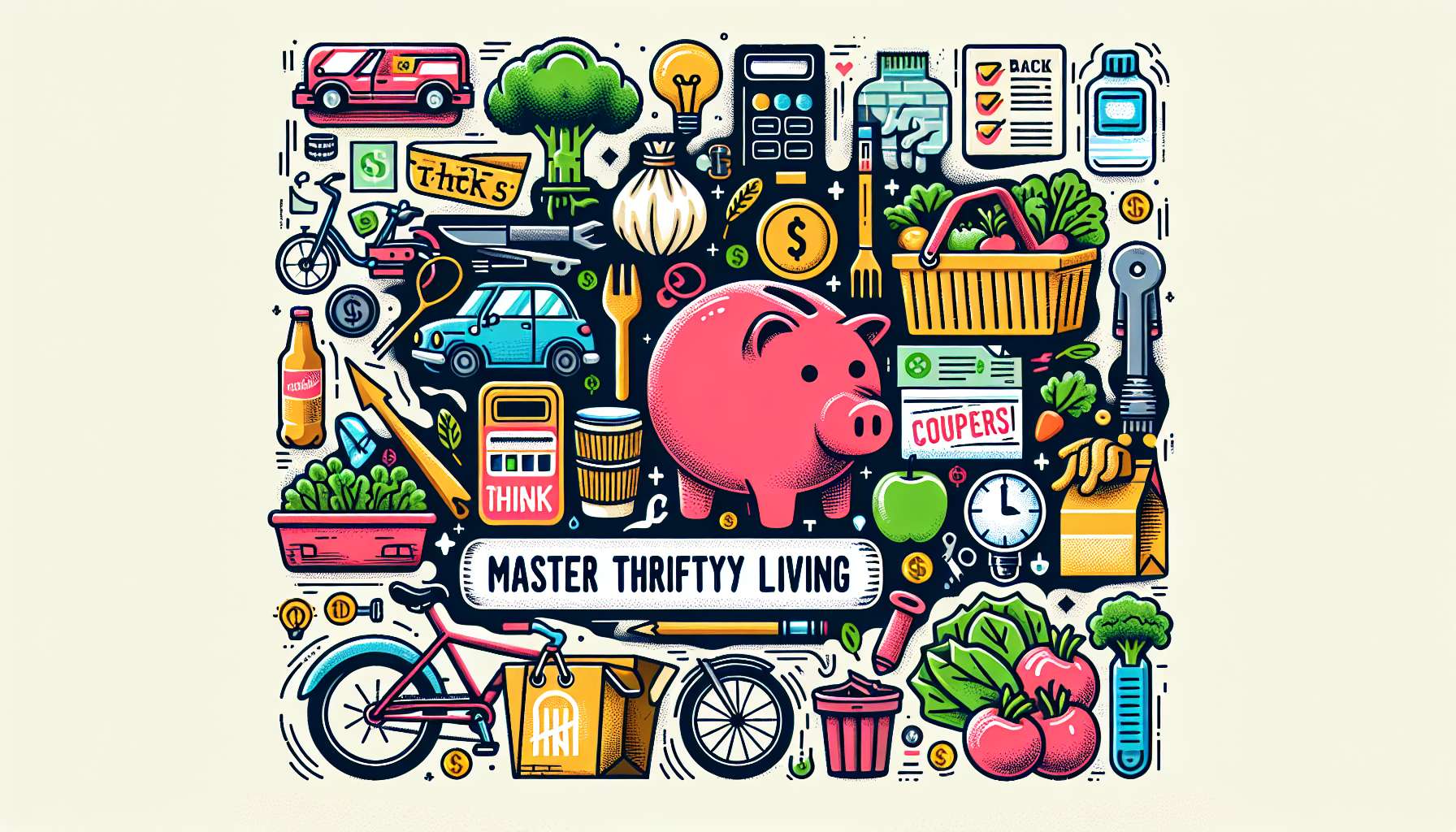Ultimate Guide to Thrifty Living: Smart Tips for Budgeting in the US


Anúncios
Title: Mastery in Living Thrifty: Essential Hacks and Financial Guidance for a Budget-Conscious Lifestyle in the US
Meta Description: Explore valuable hacks for thrifty living and financial advice to achieve a budget-friendly lifestyle in America. Save wisely and thrive!
Introduction
Anúncios
Living in the land of abundance, with a consumer-driven culture, keeping expenses low in the United States can seem daunting. With shiny new technologies and eating out as constant temptations, it’s easy to overspend. However, there’s a rising trend towards thrifty living—where spending wisely doesn’t mean sacrificing fun or comfort. This article aims to explore practical hacks and financial tips that will empower you to save money and maintain a balanced lifestyle. Ready to refine your financial habits and embrace a smarter way of living in the US? Let’s begin this transformative journey!
Understanding the principles of thrifty living is crucial before diving into specific strategies. It’s not about denying yourself joy; it’s about informed spending that aligns with your financial aspirations. It’s about making the most of your resources, finding happiness in minimalism, and spending money wisely. Thrifty living is intelligent living, rooted in mindful decisions. This lifestyle change can lead to substantial financial stability and peace of mind over time.
Living thriftily requires a strategic approach towards everyday living costs. From domestic supplies to energy consumption, small changes contribute significantly to savings. By focusing on cutting unnecessary expenses without affecting your quality of life, you can manage your budget more effectively. Simple solutions, smart shopping habits, and energy efficiency are starting points for anyone willing to embark on a budget-friendly journey—all while maintaining comfort and enjoyment.
Anúncios
Thriving with Thrift: Comprehensive Overview
Adopting a budget-conscious lifestyle involves proactive measures that efficiently lower costs. Crafting household solutions from common ingredients not only reduces spending but is eco-friendly. In prioritizing sales, discounts, and meal preparation, grocery shopping transforms into a cost-saving endeavor. Similarly, employing energy-efficient practices in your home yields substantial savings. These facets of thrifty living set the stage for financial independence, enabling both debt management and increased savings.
Financial freedom hinges on a delicate balance between debt elimination and building savings. Incorporating practical debt repayment methods and automating savings are foundational components. Structuring a financial safety net through a comprehensive emergency fund is essential. Simultaneously, adopting minimalist philosophies in a consumer-focused society shifts one’s emphasis from possessions to rich experiences. Community engagement and outdoor exploration provide lasting joy without excessive spending.
Technology becomes an ally when managing personal finances, offering applications that bolster budget control and expense tracking. Accessibility to discount-focused tools revolutionizes shopping—ensuring cost-effectiveness. Collectively, these modern aids and traditional frugal practices reinforce a robust, budget-friendly lifestyle equipped for the challenges of contemporary economic reality.
Key Characteristics of Thrifty Living
- DIY Household Solutions: Cost-effective and eco-friendly cleaning products.
- Smart Shopping: Emphasizing bulk buying and homemade meals.
- Energy Efficiency: Leveraging technology to reduce utility expenses.
- Mindful Spending: Prioritizing needs over wants.
- Minimalism: Focusing on experiences rather than material possessions.
Benefits of Embracing Thrifty Living
Transitioning to thrifty living presents numerous advantages, from improved financial health to reduced ecological footprints. By minimizing unnecessary expenditures, individuals can better manage their finances, leading to financial security. An emergency fund ensures preparedness for unexpected expenses, providing peace of mind. Additionally, this lifestyle fosters creativity, encouraging innovative problem-solving when faced with financial limitations.
Adopting thrifty living also nurtures personal growth by shifting focus from materialism to value-driven experiences, which enhance quality of life. Long-term, this cultivates resilience as individuals better navigate economic uncertainties with sound financial practices. Embracing sustainability further enriches ecological contributions, advancing global efforts towards environmental preservation.
Moreover, reduced spending fosters savings and investment opportunities, paving the way for wealth accumulation over time. It implies a responsible financial strategy that fortifies independence and self-sufficiency. As individuals accumulate savings, they gain the flexibility to explore entrepreneurship or supportive ventures, further diversifying income streams.
Furthermore, this lifestyle instills discipline and conservative financial habits, reshaping spending patterns and encouraging fiscal mindfulness. These habits transcend personal finance, influencing societal perspectives on consumption and underscoring the importance of sustainable living. This cascading effect supports broader economic resilience and societal well-being.
Ultimately, mastering thrifty living transforms financial challenges into opportunities, empowering individuals with actionable knowledge for long-term prosperity. Whether through household innovations or high-tech solutions, this lifestyle ensures personal and communal benefits. Engaging collectively, society can redefine prosperity, valuing sustainable and mindful living above unchecked consumerism.
- Financial Health: Enhanced savings and responsible spending habits.
- Personal Growth: Emphasis on experiences over possessions.
- Environmental Benefits: Reduced carbon footprint and sustainable practices.
- Creativity and Innovation: Encouragement to explore new solutions.
- Long-Term Prosperity: Empowerment to achieve financial independence.





